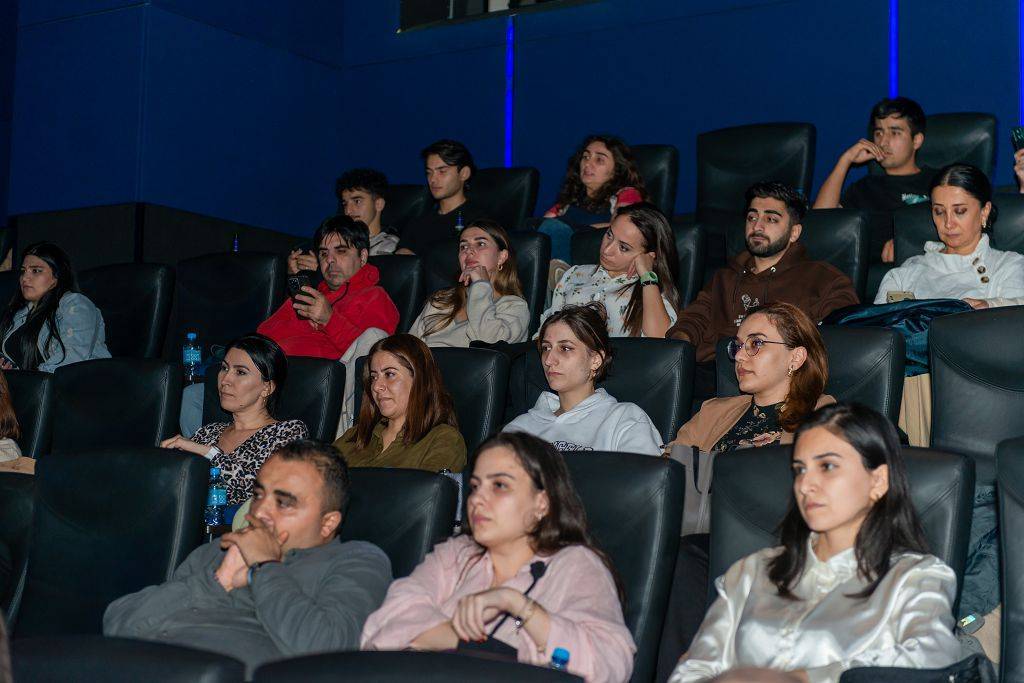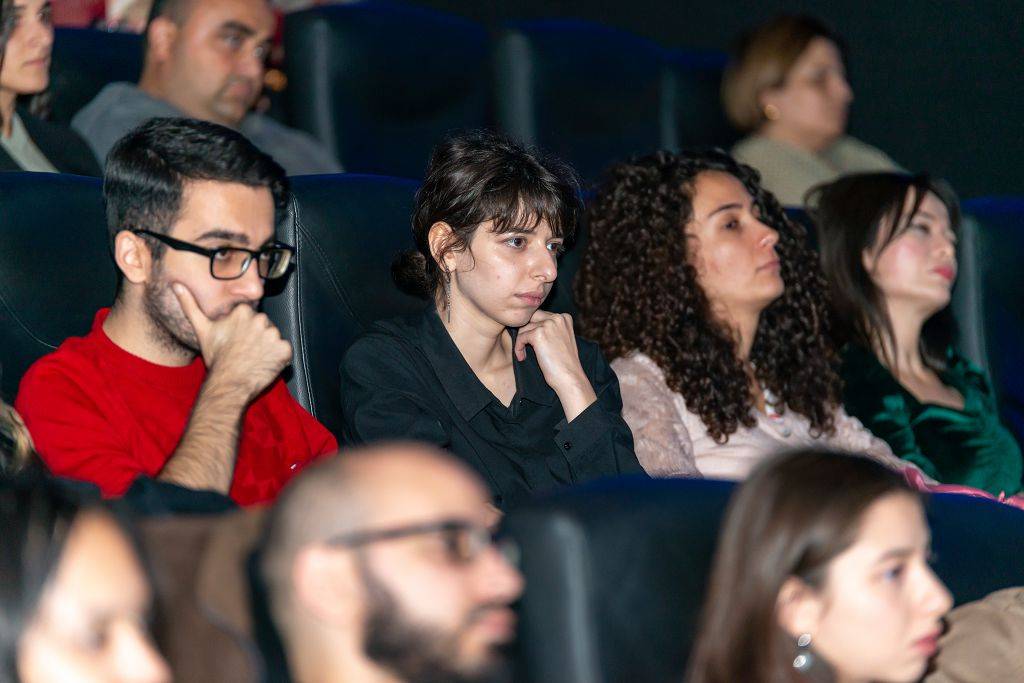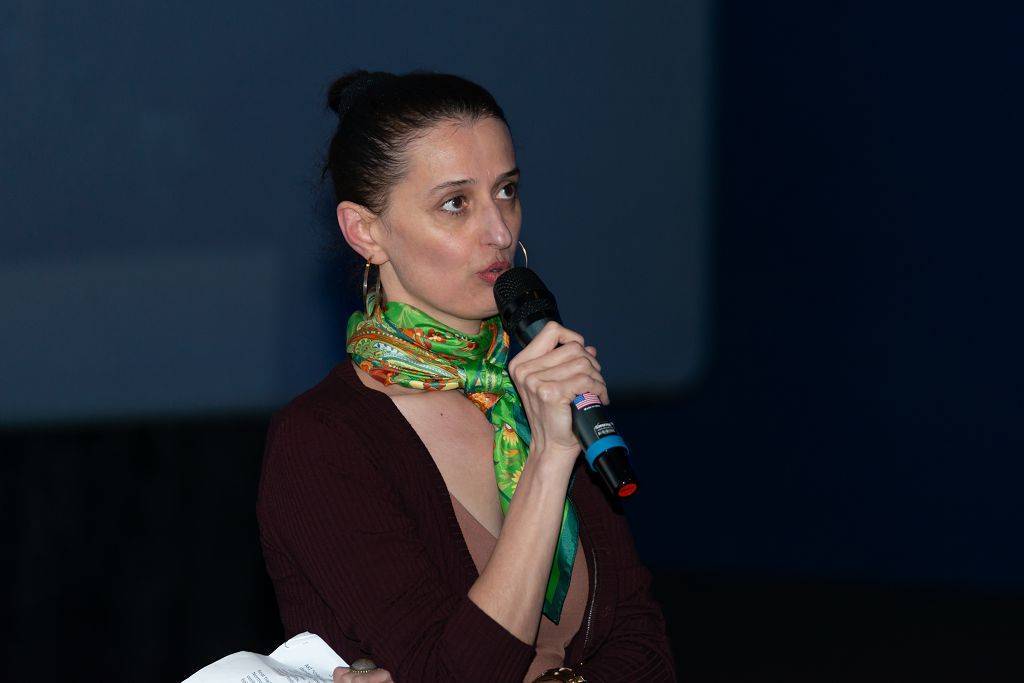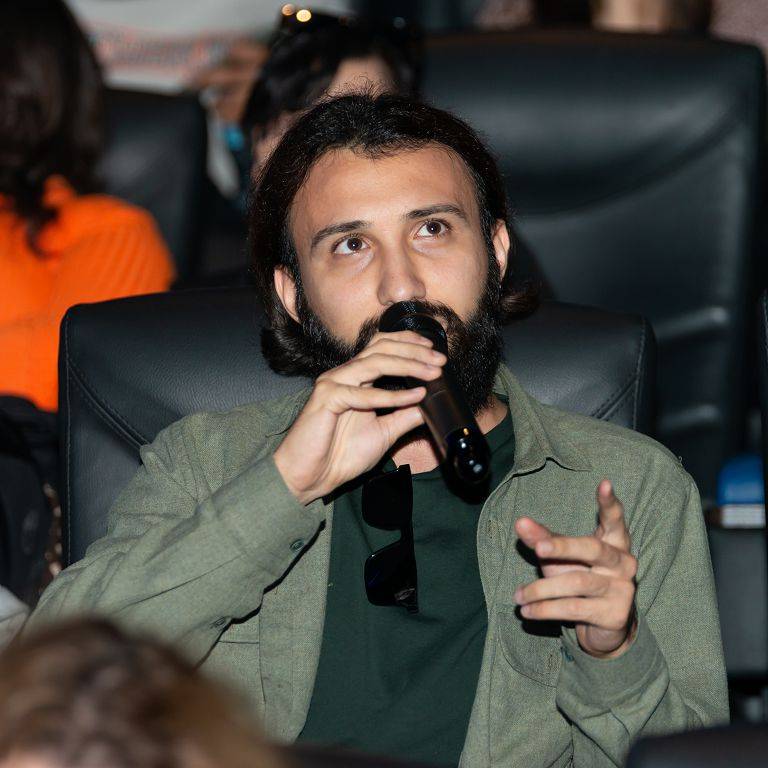WHAT DID “THE WOMAN ON THE ROOF” TELL THE AUDIENCE?
The next film, fiction one “The Woman on the Roof” by Anna Jadowska was screened within the framework of the cooperation of AUF with the Polish film festival “Wisla” on October 24. Moderator Sevda Sultanova, who gave information about the film, said that she is one of the requested authors:
“Jadowska works on television, shoots TV series, and at the same time works for the Netflix platform. One of the main works of her creativity is “Wild Roses”, which was awarded at the Stockholm, Tribeca festivals, about a young woman’s conflict with her family and society. “The Woman on the Roof”, a joint production of Poland, France and Sweden, based on real facts, won an award at Cottbus festival. The film received awards especially for the female role. The director looked for an unknown, even an amateur actress for the leading role. In the end, Dorota stood over Pomykala. “She plays in TV series and is also a well-known theater actress.”
After the screening, the film discussion began. The moderator said that Jadowska had read an article in the newspaper about a 60-years-old woman who tried to rob a bank: “The main thing that interested her in the case was the emotional process between the life of a typical, ordinary Polish woman and the bank robbery. The director stated the action of the woman on the indifference of the relatives whom she dedicated all her life to her family, took care of them, forgot herself and lost her individuality. It also describes the attitude towards woman in a patriarchal environment. According to her, the reason for women not to share her problems is the crisis in family relations, insecurity. At the same time, the woman who always carries the responsibility of the family does not want to burden her relatives with problems. Although she wanted to commit suicide at first but changed her mind at the end. According to the idea of the director, it is possible to change something, even if it is late.”
An audience member who said that had lived in Poland for a long time, thanked for the interesting film: “I watched it with interest until the end with special pleasure because it was in Polish. The problems presented here are still encountered in Polish society. I myself decided to live in Poland. But the social problems and difficult conditions there made me give my idea of.”
Talking about the cinematographic language of the film, the moderator noted that both “The Woman on the Roof” and “Wild Roses” are based on the theme of women: “In both films, the director does not offer a special visual language. Female heroes are not directly subjected to physical or moral pressure. The director shows their spiritual distress by depicting them alone in the shots, showing them soulless, silent, with pale color solutions. In “The Woman on the Roof”, the story is depicted with extremely cold colors, white lighting, and an ascetic approach. In a way, it reminds me Swedish school of cinematography. The cinematographer of the film, Ita Zbroniec Zajt, worked in Sweden for a long time. She is the first female cinematographer to receive Sweden’s Guldbagge film award.”
Another person compared the film to “Jeanne Dielman” by Belgian director Chantal Akerman. The film was released in 1975. Here too, a woman’s life is in the center and she is more silent.”
Stating that women authors such as Malgorzata Szumovska, Maria Sadowska, and Jagoda Szelc grew in modern Polish cinema, the moderator noted that, however, Sadowska does not accept the concept of woman`s cinema: “In her opinion, the concept of “woman`s cinema” violates women’s rights, oppresses and molds female directors. Let me tell you an interesting fact that one film screened at a festival in Poland caused a heated discussion due to the poor portrayal of female characters in 2016. The comments were based on the fact that male directors depict women in side characters, do not see them as personalities, women are the background for them, the means to reveal their male protagonists, the subject of their erotic fantasies. In the following years, such discussions played a role in the arrival of female directors to the cinema and attention to them.”
Additionally, the next film to be screened within the framework of the Polish film festival will be Lech Majevski’s “Brigitte Bardot the wonderful”.
aki.az






